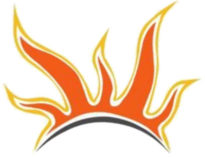Stem In the Natural Environment
Stem In the Natural Environment.
Jason Raddatz, Director of the Whitehouse Nature Center, Albion College.
Wednesdays. 10:00 a.m. — 12:30 p.m. October 6, 13, 20, 27. In Person. Whitehouse Nature Center on Albion Campus/ATTIC at Albion College Instructional Technology.
Limited to 15 participants—if you are interested in this class, be sure to read the “Policy for Limited Enrollment Classes.”
“STEM (Science, Technology, Engineering and Math) In the Natural Environment” will explore applied technologies and how these technologies are applied in the natural world. Students will explore 21st century skills such as remote piloting, kayak mounted sonar assessments, underwater robotics, along with robot gardening, three-dimensional modeling, and printing. As a Michigan Innovative Teacher award winner, Jason has been known to shake things up and improvise instruction.
Class 1. Introduction to Remote Piloting:
Students will learn to pilot in two and three dimensions in a similar manner to how kids learn: Playing games. From there, we will work on remote sensing and communication strategies to unlock the limitations of limited sight. (Inside / Outside)
Class 2. Introduction to 3D Modeling and Printing:
Students will learn the mysteries of printing with plastic. Students will use Tinker-Cad to make and develop a 3D model for Halloween which will be printed either at the Nature Center or at the Albion Technology and Innovation Center. (Inside)
Class 3. Introduction to Coding:
What is better than piloting drones? Coding Drones! You and your group will use coding blocks to program your drone out of a maze. A visit to the Farmbot and a demonstration is also part of the day. (Inside / Outside)
Class 4. Introduction to Orthomosaic and field assessments:
Managing habitats in the WNC is not an easy task, but we use some pretty interesting technologies to assess our progress. In this class, you will make a quick map of the wild rice behind the football field, add invasive vines to the Michigan Invasive Species Network, and plot trees that will be tapped to make maple syrup.
Important: There is a materials fee of $15.00 to cover equipment use and consumption of plastic.
